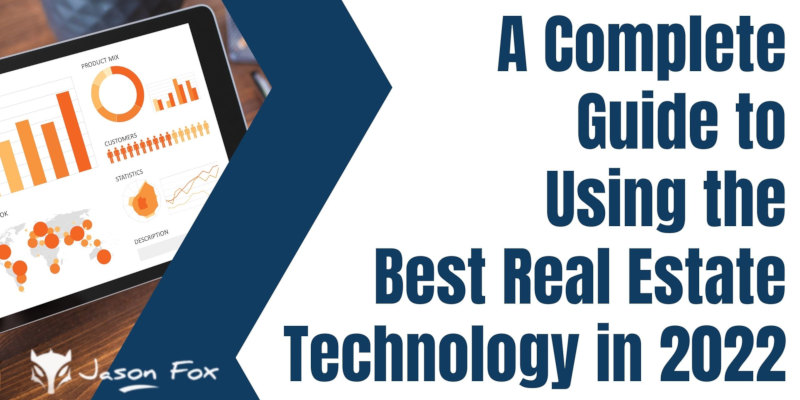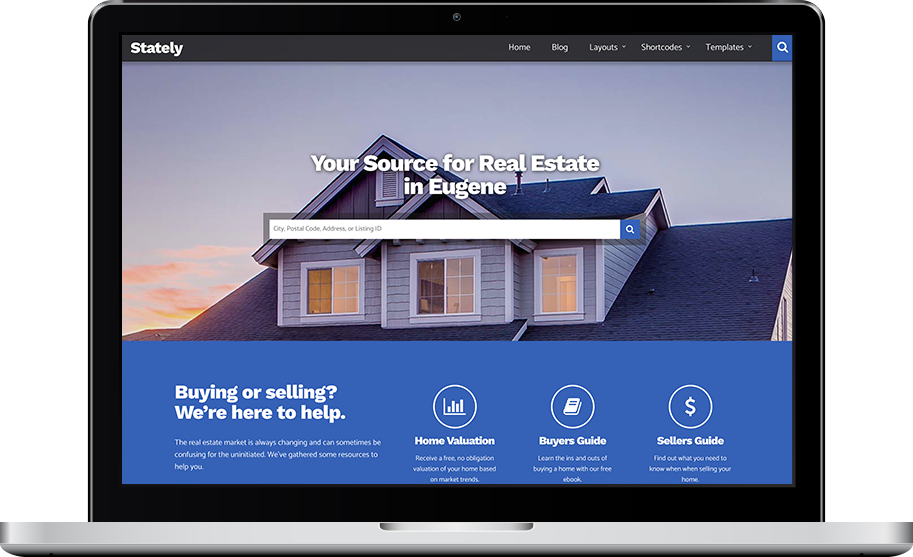Contents
Gone are the days when real estate agents could get away with old-school strategies involving pen and paper or Excel spreadsheets when conducting business.
Today, technology has reshaped the real estate landscape and although it’s still a local or regional business in a lot of ways, brokers, realtors, and agents now lean on technology as a way to boost collaboration, facilitate workflow automation, and close more deals.
This article takes a look at some of the best real estate technology that you should consider using in 2022 and how you can use them effectively to stay ahead of the competition, save time and money, and consequently boost your profits.
This guide has been separated into different categories which include both software and hardware for everything from lead generation and nurturing to marketing and design, community engagement, expense tracking, and much more. If you’re ready, let’s get started!
1. Google Suite of Tools
It would be impossible to discuss the best tech tools for realtors without mentioning Google. The company offers an extremely useful suite of tools, many of which are particularly useful to real estate agents.
These include (among many others):
- Google my Business: For local SEO, reviews, posts, pictures and videos, pin on the map, etc.
- Gmail: This is a free and reliable email tool that easily syncs with many other CRMs, apps, and tools used by realtors.
- Google Maps: A free and convenient tool to find listings that also allows you to create custom maps.
- Google Drive: You can use this tool to create folders of pictures, client files, contracts, etc., and upload them to the cloud for easy access from any device.
- Google Calendar: A great tool for sending virtual buyer presentations and listing appointments. It also syncs with Zoom.
2. Lead Generation and Nurturing Tools
This type of software will help you connect with potential customers in a more efficient way.
The real estate marketing landscape is continually changing, making it harder to penetrate. For most realtors, generating leads that will eventually convert can prove to be a challenging task.
Though challenging, this can be done. For example, if you were able to use a lead generation tool and get the rights to a PLR course that your audience would find beneficial, you can offer that course as a free download if they give you their email, thus making them a lead for your email marketing efforts.
With the right lead generation and nurturing software, you will not only be able to get more actionable leads but also manage them and create effective systems for transforming them into beneficial buyers.
The majority of lead generation tools have similar features, but some offer unique functionality that can be the difference between an exceptional or mediocre realtor.
Examples of Lead Generation and Nurturing Software:
- BoomTown: A platform that offers an easy way to get found by millions of searchers looking for real estate opportunities.
- Pardot: This platform comes with a lead deck that has real-time updates on the activity of your prospects.
- Zurple: With this software, you get lead behavior tracking, effective lead generation tools, and optimized follow-up emails.
- NewProgrammatic: It is a performance marketing platform designed to capitalize on customers’ intent and shorten their path to your brand.
3. IDX Lead Capture Tools
Are you tired of chasing down leads? Lead generation is great but it’s a bit overhyped. This is not to say it’s bad, it’s just not for everyone. Some agents do really well with lead generation tools. They’ve learned to spot good leads in a sea of bad ones and they aren’t afraid to put in the time making cold calls.
Fortunately there are other approaches that can generate solid leads. The inbound marketing approach has been around for years. It operates on the principal of putting your business in a position to be found. Offer something of value and you will be sought out.
What can I offer? You probably have more to offer than you realize. If you are an expert on the area you serve why not offer free information that people can use; a restaurant guide, reviews of local schools, activities for the family, etc.
Once you’ve established yourself as a local authority potential clients will find you. Zillow is already offering listings, give them a reason to come to you first.
Where do they find me?
Your starting point should be your website. Sure, you can use the cookie cutter template your broker offers but having your own website will not only feature your brand, it will show legitimacy, authority, and set you apart from the competition. Plus, it’s a powerful marketing tool.
The best, most cost effective way to do this is with a custom WordPress website using an IDX solution with lead capture capability. There are a lot of IDX providers but not all have lead capture capability.
Examples of IDX solutions with Lead Capture:
- IDX Broker: It’s no secret that we love IDX Broker. They’ve been around for several years and keep improving. They provide listings, market reports, custom search pages, map search, lead management, and a host of lead capture tools. Everything is fully customizable and hosted on their fully optimized servers. Plus they have some of the best customer service around.
- iHomefinder: The oldest member of the list they’ve been around since 1997. They offer a similar approach to IDX Broker with good MLS coverage and a built in CRM. The customer service isn’t as good as IDX Broker, you’ll have to have one of their higher end plans. Their home search solutions look nice and the company is expanding their offerings. A lot of the decision will come down to the look of the widgets.
- Showcase IDX: Another leading IDX platform that’s been around for years. They offer attractive IDX listings but don’t have the coverage of its competitors.
- Diverse Solutions: Offers a large MLS coverage and paid media upgrades. The biggest complaints continues to be with the quality of their customer service.
4. Big Data and Analytics Tools
Big data can benefit the real estate industry in a lot of ways. The more data realtors and agents have, the more data-driven (and ultimately more profitable) decisions they can make.
Many of the popular property management sites like Redfin, Zillow, and Trulia have disrupted the industry through the use of big data and data integration software. They are able to compile data – and sometimes collect it – on different topics, including:
- Buying and selling trends within specific areas
- Traffic data
- Consumer survey results
- Demographic information
… and much more.
They can then analyze the data to get valuable insights on home value trends, pricing, potential value in specific neighborhoods, and so on.
You can use big data to help you personalize the customer’s experience by analyzing their previous choices and making suggestions for better-suited properties.
Big data will also help you improve tenant selection, conduct automated valuation computations like Zillow and other real estate websites do, and much more.
Examples of Companies Using Big Data:
- Zillow: This company uses big data software to recommend enhanced and more personal searches.
- Redfin: A company that is focused on providing its customers with transparent, real-time, and authentic data.
- Trulia: This platform is filled with topical information including recent surveys, home listings, and other important information relevant to buyers and sellers.
5. Social Media Platforms as Tools for Engagement
Real estate technology also involves social media marketing tools designed to help make your work a lot easier.
After all, your prospective clients are on all the different social networks, including Facebook, Instagram, Twitter, Pinterest, etc. which means that you need to have a strong presence there, too. You can achieve this by using dynamic creative ads or social media tools for engagement.
Examples of Social Media Tools for Engagement:
- Homesnap Pro: This is a cutting-edge tool that easily integrates MLS data so you can automatically promote your home listings on different platforms like Instagram, Facebook, and others.
As soon as you put the listing in the MLS, you can create a campaign and this tool will schedule a series of posts on social media so you don’t have to manually create individual posts. This is an ideal set-and-forget solution for busy realtors.
Of course, you can also use a non-real estate-specific tool like HootSuite or Buffer to schedule and automate your social posts.
These tools are also helpful and cover a lot of social networks like Pinterest and Twitter that aren’t currently covered by Homesnap Pro.
6. Help Desks
Although real estate is a vibrant and dynamic industry, critical information in the industry often isn’t readily available.
Even in today’s age of technological advancement, standardized practices are still few and far between. One of the major reasons for this is because the majority of companies have not adopted the use of real estate help desk software.
This type of software makes it very easy to manage processes such as:
- Buying a home
- Land valuation
- The building process
- Property management
… and much more.
Examples of Real Estate Help Desk Software:
- HelpSumo: This software equips you with the tools you need to build a community platform where homeowners and tenants in the neighborhood can commune.
- HelpRace: With this platform, you’ll be able to make tickets and workflows effortlessly for your team and provide unique and personalized service to each customer.
7. Technologies for Offering 3D Virtual Tours
3D technology is a must-have for realtors who want to have an edge over their competitors.
These days, homebuyers know that images can be deceiving, and that’s why they absolutely love 3D home tours.
They’ll be better able to understand the properties layouts and room sizes so they can make a more informed decision as to whether or not the home could work for them before making an appointment to view it.
To provide 3D home tours, the first thing you need is a 3D camera. Investing in one will allow you to distinguish yourself since not many realtors offer 3D tours in the presentation of their listings.
This will also give you an added advantage when sellers are looking to interview multiple listing agents.
If investing in a 3D camera isn’t possible for you, there are software tools available for iPhones and iPads that make it possible for you to create 3D digital copies of your listings and properties.
Examples of 3D Software Tools for Real Estate:
- Matterport: This company offers amazing 3D virtual tours that let you transform any space into an accurate, immersive digital twin.
- Zillow 3D Home: This is a free tool that allows you to create and upload 3D tours. Simply download the app and take panoramas of the listing and the app will do the rest.
8. Virtual Staging Technologies
Virtual staging technology helps to make home staging simpler in today’s environment of social distancing. You can use it to beautify any home for a virtual open house.
To use virtual staging technology, all you need to do is take a picture of an interior room, hand it over to a virtual stager, and they will edit the decor and furniture.
This tactic is perfect for helping you snag buyer attention by showcasing the listing’s full potential and igniting the prospect’s imagination on what their home could look like.
Furthermore, virtual staging is perfect for helping you sell the home because it allows for easy customization which means you can show the same room to different clients in different ways – each with their unique tastes and preferences in mind.
Best of all, virtual staging can help you cut down on many of the expenses associated with staging a home.
Examples of Virtual Staging Tools:
- PadStyler: Here you’ll find virtual staging professionals who are eager to infuse your listing with style so you can sell it faster.
- BoxBrownie: This platform offers virtual staging services for both commercial and residential real estate.
- Zillow: Allows real estate agents to capture images of the property using an iPhone and customers can click and tap arrows on the app to move around different rooms.
9. Video Conferencing Tools
If there’s one thing real estate agents have learned in the past few years, it’s that you can now sell properties almost completely virtually. Video conferencing tools are a big part of that.
With the right tools, you’ll be able to effectively conduct buyer presentations, listing presentations, virtual open houses, sales meetings, team meetings, client meetings to go over details, and much more.
Examples of Real Estate Video Conferencing Tools:
- Zoom: This is one of the most popular and free video conferencing tools for real estate agents.
- Skype: This was one of the first successful tools for video conferencing and it’s still among the most popular and widely used due to its simplicity.
- GoToMeeting: This online conferencing service features mobile apps, calendar integrations, Unlimited recording, and up to 250 participants among other features.
10. Real Estate CRM Tools
CRM (customer relationship management) software is essential for those in the real estate industry. It helps you manage every aspect of your client relationship and interaction, including:
- Tracking emails and leads
- Managing contracts
- Keeping tabs on any progress made with prospects
… and much more.
A CRM helps you do all of this and more through the use of a carefully organized database. And since realtors know that the most important factor for success in the industry comes down to the relationships you build, it’s important to choose the right CRM that will help you work smarter and not harder.
Examples of Real Estate CRM Tools:
- HubSpot: No CRM is complete without mentioning HubSpot. While it isn’t real-estate specific it is one of the most powerful CRM platforms out there. With full analytic and marketing integration you will know exactly how your marketing budget is performing.
- Top Producer: This is a leading real estate-specific CRM designed to give you access to MLS data, native integrations, and market snapshot reports.
- LionDesk: This CRM platform has a power dialer to help you run your lead generation and transaction management smoothly, as well as provide a lot of additional integrations.
- Pipedrive: This is a solid and affordable CRM platform that will help you easily create visual pipelines to keep track of your leads, conversations with clients, and follow-ups.
11. Process Automation Software
As a real estate agent, you want to find the best automation tools that will help you create a more efficient workflow so you can leverage opportunities to convert more leads into clients.
You must choose the right platform that will provide you with reliable tools to help you attract and maintain leads, provide quick responses, and avoid having to do routine tasks such as data entry, sending follow-up emails, and more.
In short, the right process automation software will help you free up more of your time so you can do what you do best – sell houses.
App Integration Technologies
The majority of agents these days have had apps like Trulia and Zillow on their phones for years. However, with all the brand new apps popping up these days, it can be helpful to have app integration technologies so you don’t let helpful apps slip by you.
Examples of Process Automation Tools for Real Estate:
- Zapier: When it comes to automation, this software is like the Swiss army knife and it will let you establish a seamless workflow between multiple tools and apps.
- Integromat: This is an alternative to Zapier which comes with great visualizations of automated workflows so you have a simple view of how different triggers lead to the automation of specific tasks.
- io: This tool works in much the same way as Zapier and Integromat by integrating different tools and apps to make your workflow more efficient.
- Fyle: An expense management software that automates your entire pre-accounting processes and frees up time for your finance teams. Have your agents track their expenses from applications they use everyday like G-Suite, Slack etc.
Conclusion
A real estate agent has to do 101 different things at any given time – not least of which is being an expert in technology.
Although putting the right technology in place at your real estate agency is not something that you can do overnight, if you can conduct an environmental scan to determine your weaknesses, the tips in this article will help guide you toward the best real estate tools to use (in this year and the coming years) so you can add value to your marketing strategy and increase your profits.
Over to you. Are you already utilizing all the tools listed here? Share your experience in the comments below!

Written by : Ron Stefanski
Ron Stefanski is a college professor turned online business owner. He’s helped hundreds of thousands of people create and market their own online business. You can learn more about him by visiting OneHourProfessor.com You can also connect with him on YouTube or Linkedin.





